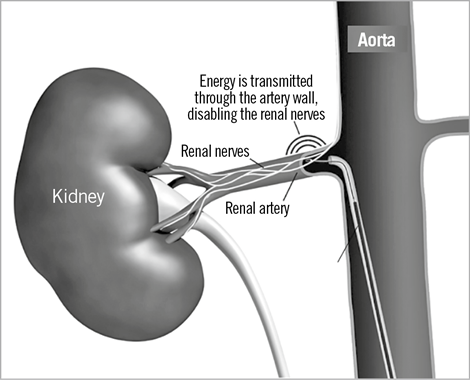Basic Facts:
- Renal denervation (also called renal ablation) is a minimally invasive procedure to treat hypertension (high blood pressure) when patients continue to have elevated blood pressure despite medications and healthy lifestyle changes. This type of hypertension is called resistant hypertension.
- Your brain, heart and kidneys send messages to nerves throughout your body to help regulate your blood pressure. Overactivity in these nerves can increase your blood pressure. Renal denervation reduces activity in the renal nerves which runs near the kidneys. This, in turn, helps lower blood pressure.

- An interventional cardiologist uses a catheter positioned into the renal arteries to send ultrasound or radiofrequency (heat) energy the area around the arteries (this is where the nerves travel). This energy ablates the renal nerves without damaging the arteries. The reduced nerve activity causes a drop in blood pressure.
- Your provider may recommend renal denervation if you have resistant hypertension. To be a candidate for renal denervation, you also need to have healthy blood vessels.
